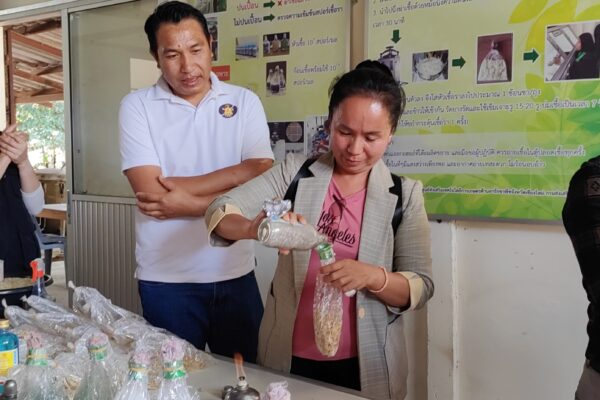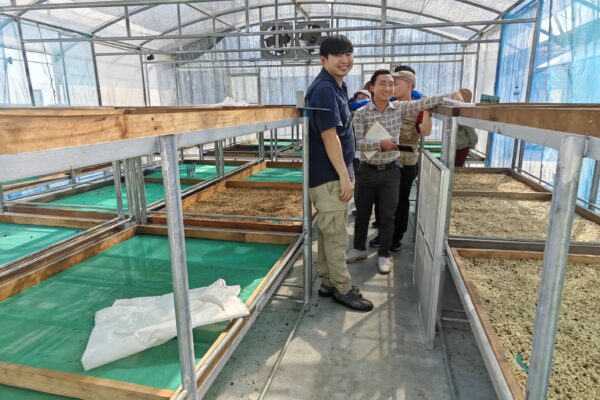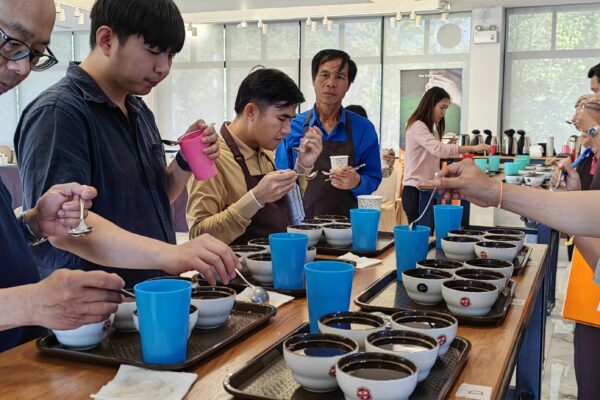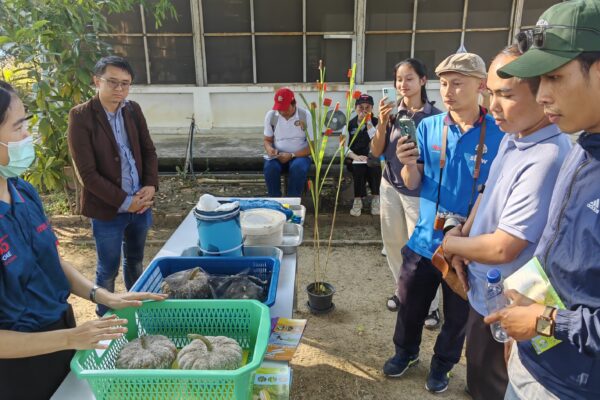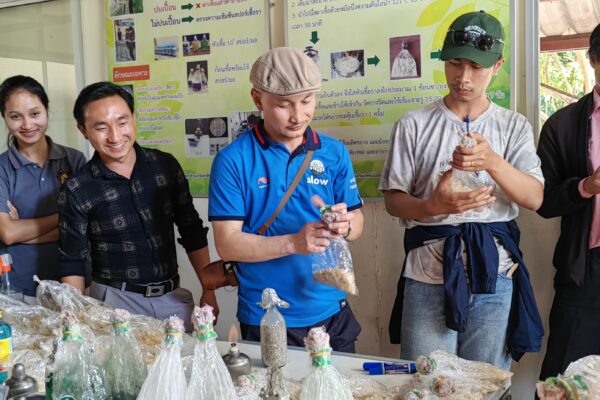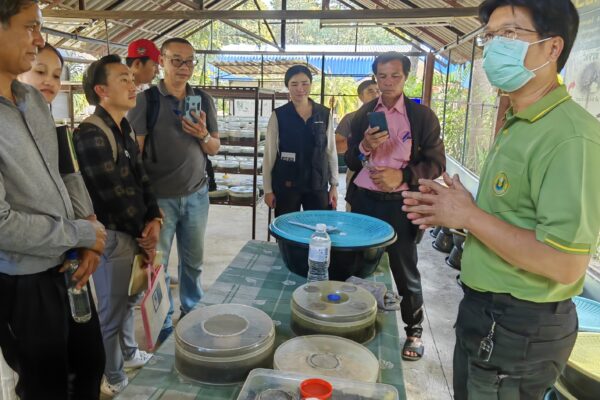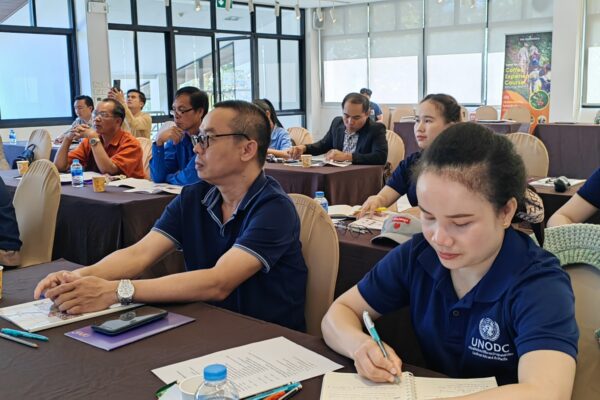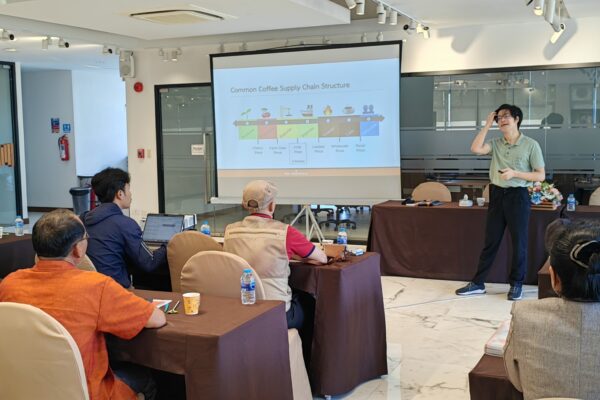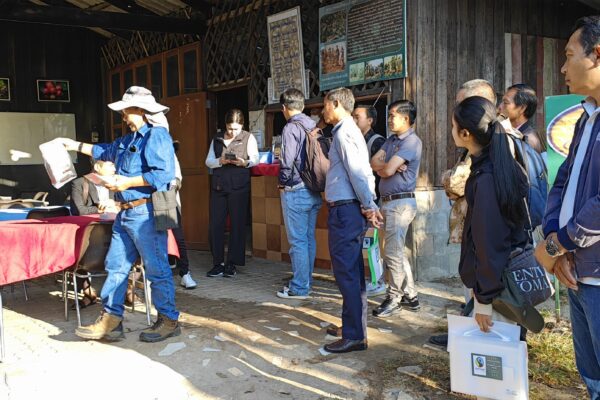In today’s fast-paced world, staying ahead means constantly upgrading one’s knowledge. Mrs. Somchanh Sayavong recognizes the importance of staying informed, particularly when it comes to enhancing coffee quality at the farm level through practices like pruning and bio-controlling techniques. Her awareness mirrors that of many coffee producers in Thailand who share a common desire for support in post-harvest management.
Recognizing this need, Fairtrade NAPP, in collaboration with Fairtrade Switzerland, recently organized a workshop focused on coffee farm management and post-harvest techniques for Laos producers in Thailand. 16 leaders from four small producer organizations attended the workshop to gain essential insights for addressing the challenges they face at both the farm and processing levels. The main objective of the workshop was to equip coffee producers with the necessary tools to tackle production issues effectively. Various topics including organic farm management, techniques for multiplying and applying biocontrol agents, and best practices for ensuring high-quality coffee processing were covered for the coffee producers.
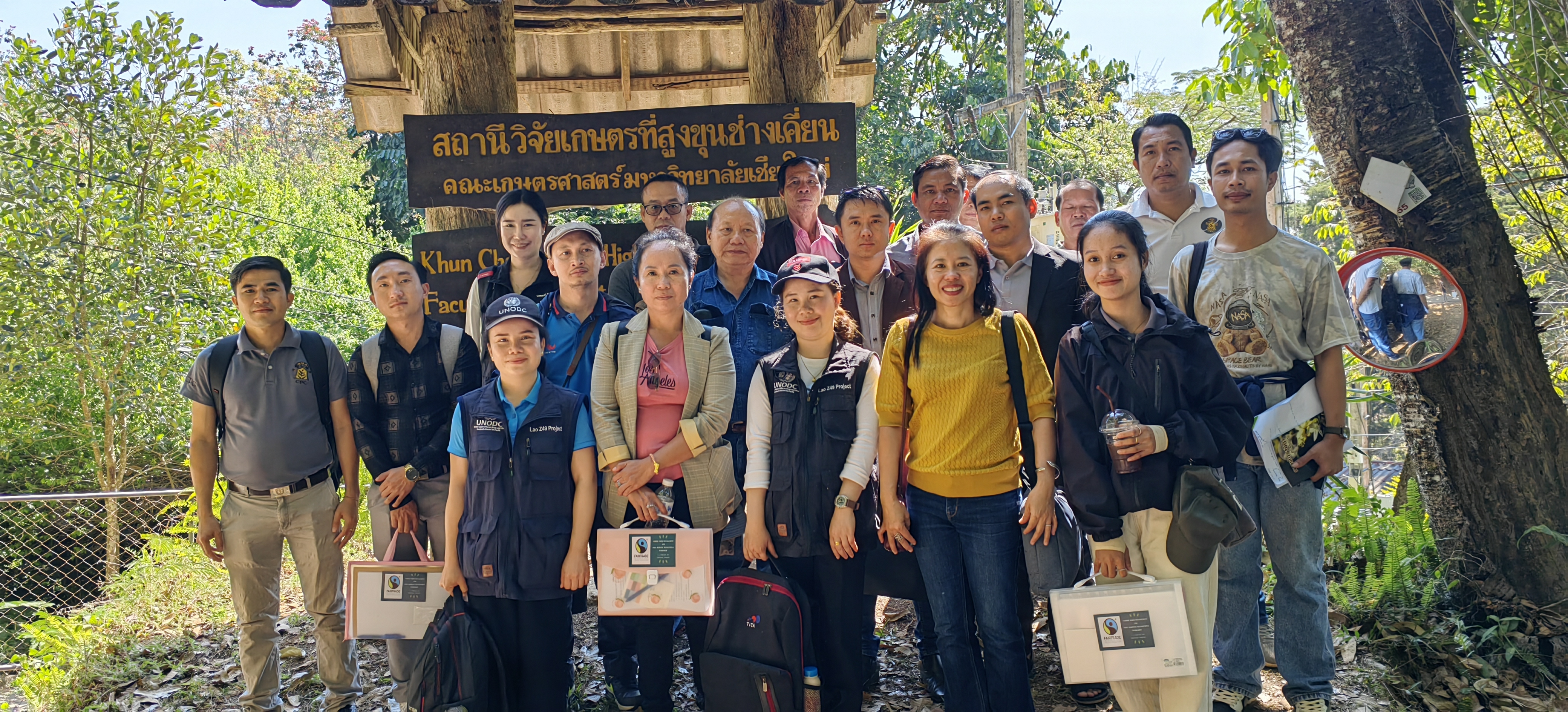
The training kicked off with a morning session dedicated to outlining the workshop’s agenda. This was followed by informative sessions on coffee varieties and organic farm management. Participants then ventured into an organic coffee orchard for hands-on training in coffee pruning techniques. The day progressed with training sessions focused on biocontrol-based strategies to enhance coffee productivity. Participants also engaged in practical sessions on the mass production of bio-agents for coffee pest control and coffee insect management; with particular emphasis placed on tackling pests like the Tea Mosquito Bug. On the subsequent day, the training started with a visitation to the coffee factory, learning on coffee post-harvest management in commercial level. The afternoon session was followed by learning sessions on coffee anatomy and coffee tasting and sensory test. At the end of the session, the small producer organizations are encouraged to develop the coffee development project proposal for funding from CDP year 3 budget based on the challenges and the work plan discussed.
The immediate outcomes of this workshop have been evident as representatives from four coffee small producer organizations in Laos have notably enhanced their understanding of various aspects of organic farm management. Specifically, they have gained valuable insights into pruning techniques, biological pest management, and post-harvest procedures aimed at elevating and maintaining coffee quality. Mrs. Somchanh Sayavong enthusiastically acknowledges the workshop’s role in providing opportunities for embracing new technologies and knowledge that offered a rich exploration of the coffee production journey from farm to cup.
The emphasis on enhancing coffee quality at the farm level, particularly through pruning and bio-control methods, perfectly resonated with the CPC’s (Cooperative des Producteurs de Cafe du Plateau des Bolovens) requirements. Furthermore, the advanced processing practices showcased during the workshop serve as exemplary models for improving factory operations. Drawing inspiration from the Thai learning center, Ms. Sayavong and her organization can now be focused on enhancing the agricultural extension skills of their technical staff. They are now planning to enhance the agricultural extension skills of their technical staff to effectively transfer knowledge to our farmers.
Through comprehensive training, participants have also expanded their understanding of coffee processing techniques that empowers them to integrate newfound knowledge into their processing units seamlessly. Equipped with effective teaching techniques, these leaders are now capable of simplifying complex information for dissemination to farmer members, thereby fostering a culture of continuous learning and improvement within the community.
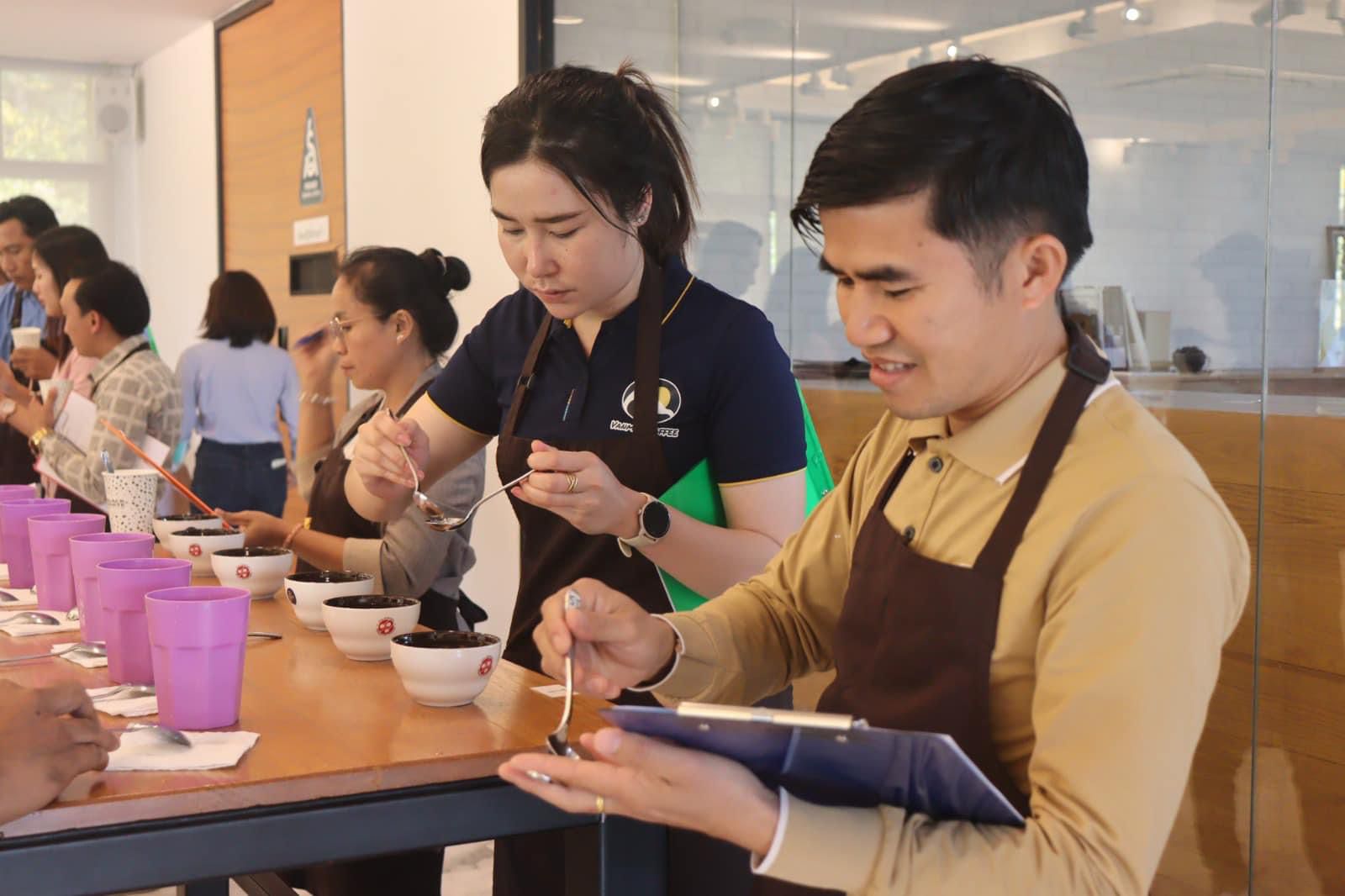 Miss Phuangnisa Thavyvanh, states, ‘I have learned a lot from this training. It was a very interesting workshop. I learned that we can easily multiply the beneficial fungus, Beauveria bassiana, using local materials available in our village. This will help us reduce production costs for pest management. However, with the limited time, we had too many sessions to cover. The wastewater management session was particularly interesting to me. I would like NAPP to provide us with the next learning course on wastewater management.’
Miss Phuangnisa Thavyvanh, states, ‘I have learned a lot from this training. It was a very interesting workshop. I learned that we can easily multiply the beneficial fungus, Beauveria bassiana, using local materials available in our village. This will help us reduce production costs for pest management. However, with the limited time, we had too many sessions to cover. The wastewater management session was particularly interesting to me. I would like NAPP to provide us with the next learning course on wastewater management.’
With plans to launch the Coffee Development Project (CDP) in its third year, the focus will be on bolstering bio-control farm management practices for the benefit of four Laos Small Producer Organizations. Through collaborative discussions, these SPOs will identify challenges and devise strategic plans aimed at overcoming them. Subsequently, project proposals will be crafted to address significant obstacles faced by both the SPOs and their members. Despite the challenges posed by time constraints and the distances required to travel to various training centers, Fairtrade NAPP remains committed to the ongoing development and support of the coffee-producing communities in Laos.


